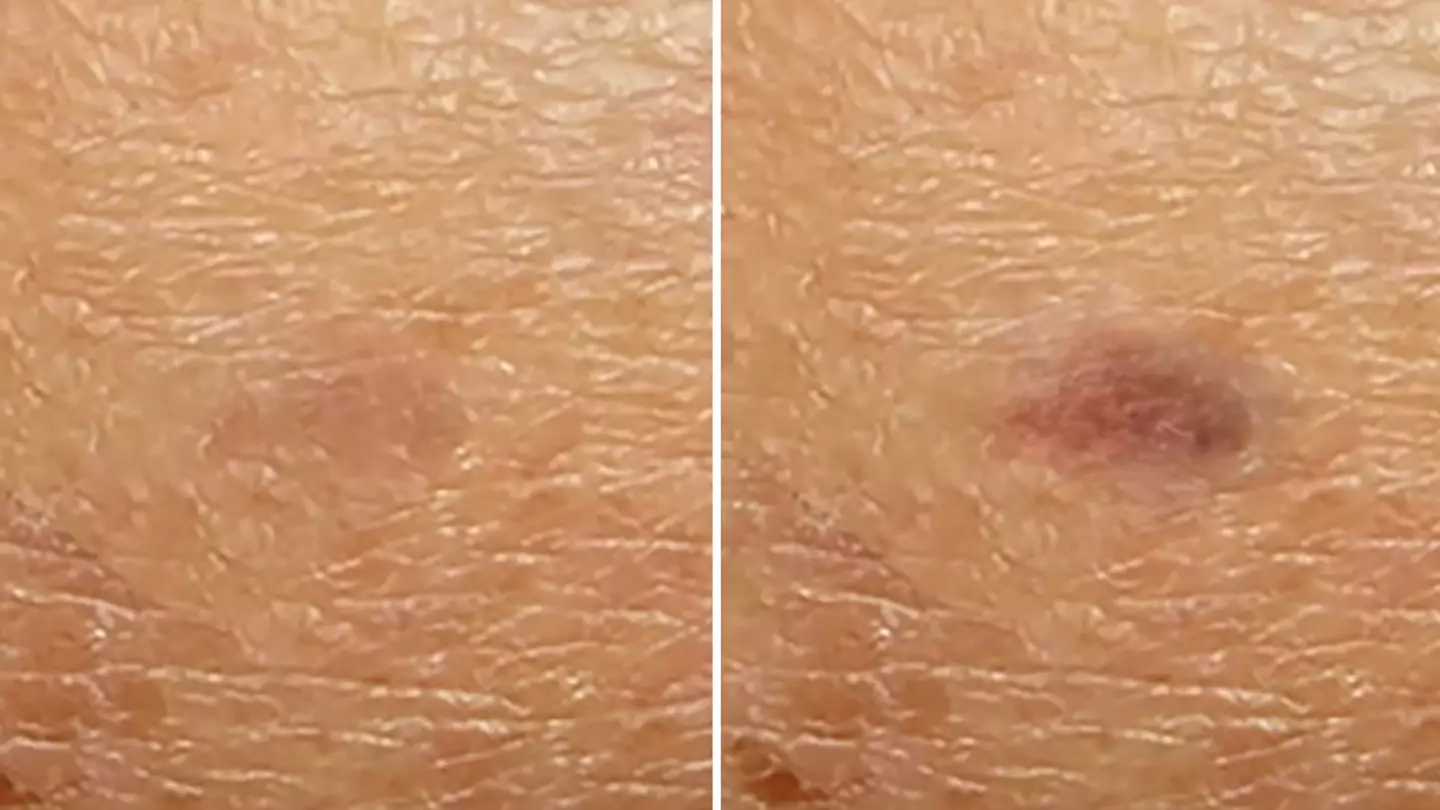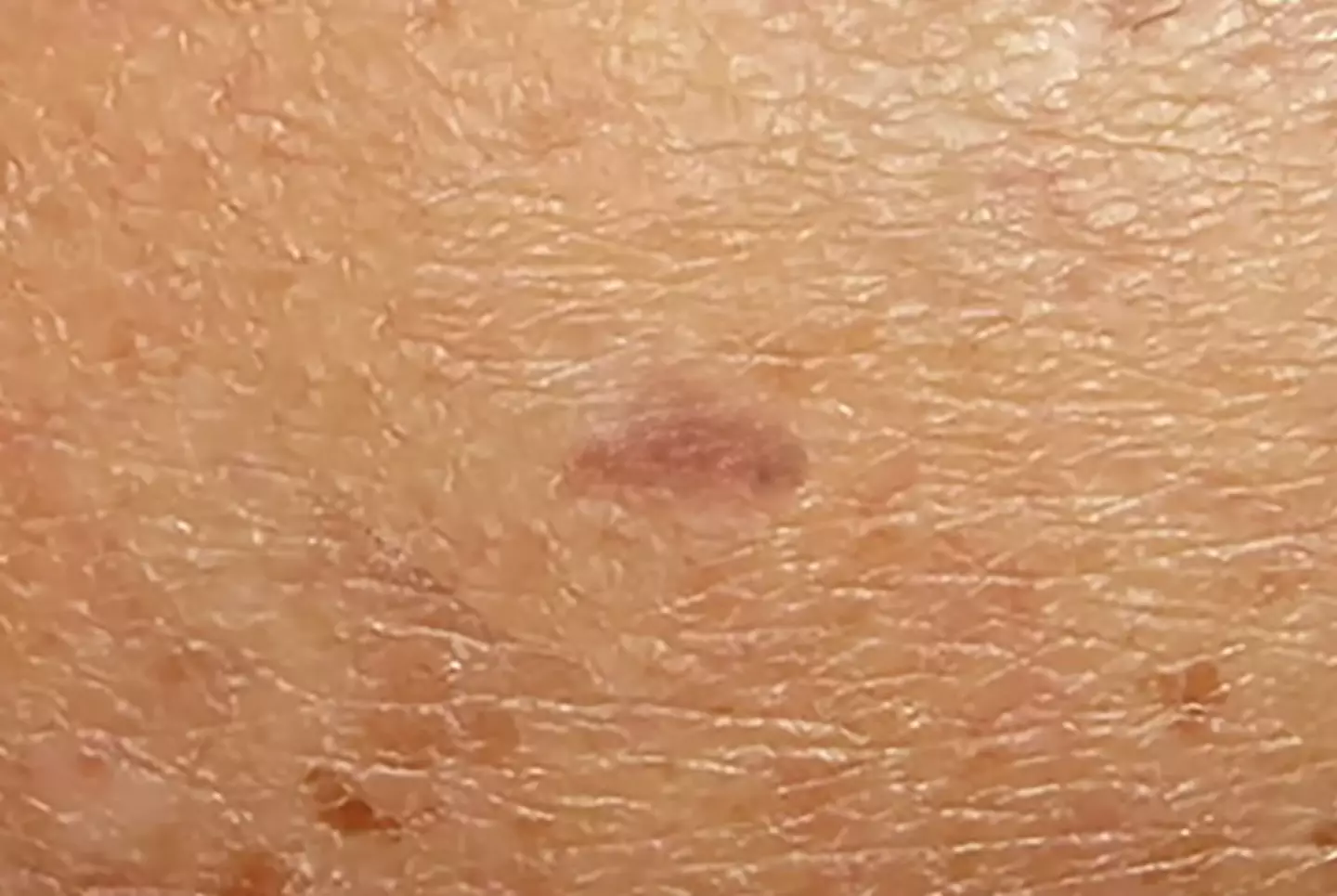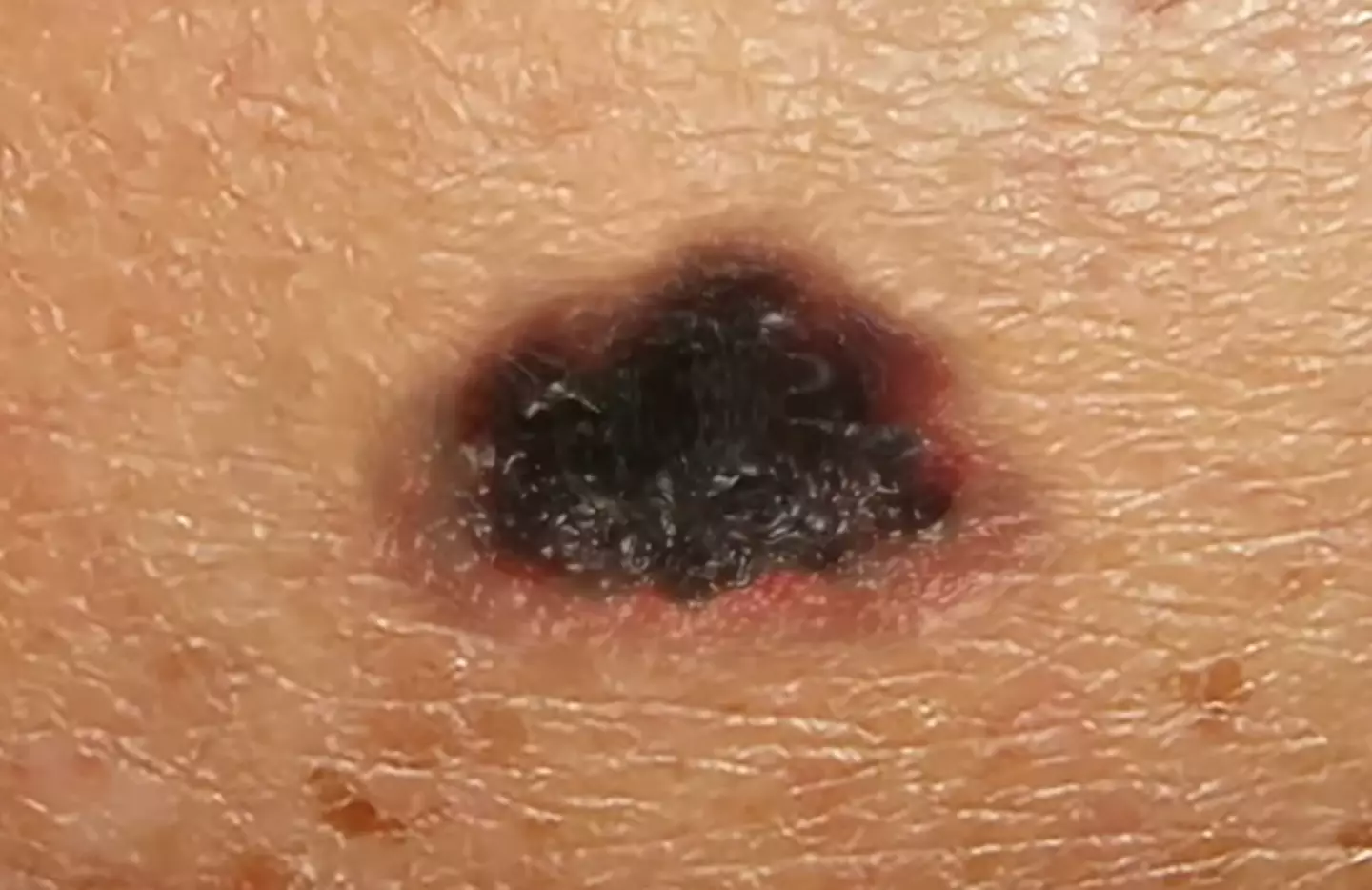
A truly 'scary' time-lapse video has shown the entire process of how a dark patch of skin can turn eventually turn into melanoma cancer.
Melanoma is a type of skin cancer that can spread to other areas of the body with the main cause of it being ultraviolet light, which comes from the Sun and is used in sunbeds.
There are also a number of things that can increase your chances of getting melanoma - including your age and having pale skin, a large number of moles and a family history of skin cancer, the NHS says.

Advert
It's often possible to prevent skin cancer by being careful in the sun, for example, by using sunscreen and reapplying it regularly.
However, if you do develop melanoma then treatment usually depends on where on the body it is, if it has spread to other areas of your body as well as your general health and wellbeing as a whole - but surgery usually is the main treatment.
And the YouTube channel, Fauquier ENT, posted the pretty chilling clip using generative AI based on actual melanoma photos to show people just how easily something seemingly small can, one day, possibly pose a major health risk.
And it's clear that the footage, which chronicled a 'Normal to Stage 4 melanoma over 10 years', really stuck with viewers.
Advert

One YouTube user penned: "Scary how long this can go unnoticed."
"The rate at which it grows towards the end is scary…" echoed a second, while a third said: "New fear unlocked."
A fourth called the clip 'crazy'.
Advert
Someone else added: "This is so creepy."
"Thats a great simulation," praised a final YouTube user.
"I would have had no idea what melanoma looks like in early stages. Thanks!"
The NHS explains that melanoma skin cancer can often be treated but the treatment you have will depend on:
- where the cancer is
- if it has spread
- your general health
And while surgery is the main treatment for melanoma, radiotherapy, medicines and chemotherapy are also sometimes used.
If you do have the condition, then your specialist care team will:
- explain the treatments, benefits and side effects
- work with you to create a treatment plan that's best for you
- discuss the chances of the melanoma coming back and how it will be treated if it does
You'll also have regular check-ups during and after any treatments and depending on the stage of your melanoma, you may have tests and scans.
Advert
If you have any symptoms or side effects you're worried about, talk to your specialists and you do not need to wait for your next check-up.
You can find out more information about melanoma here.
If you’ve been affected by any of these issues and want to speak to someone in confidence, contact Macmillan’s Cancer Support Line on 0808 808 00 00, 8am–8pm seven days a week.